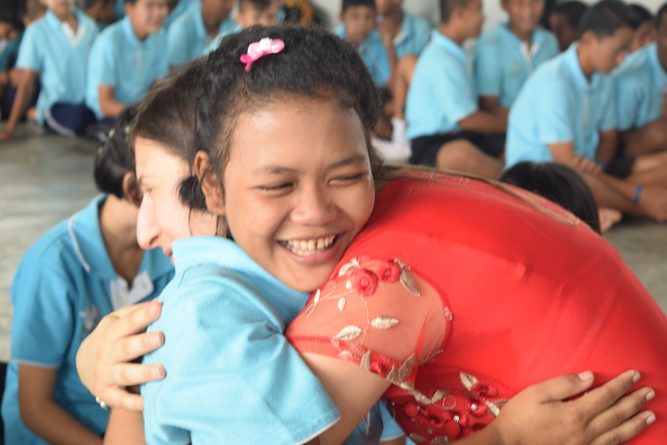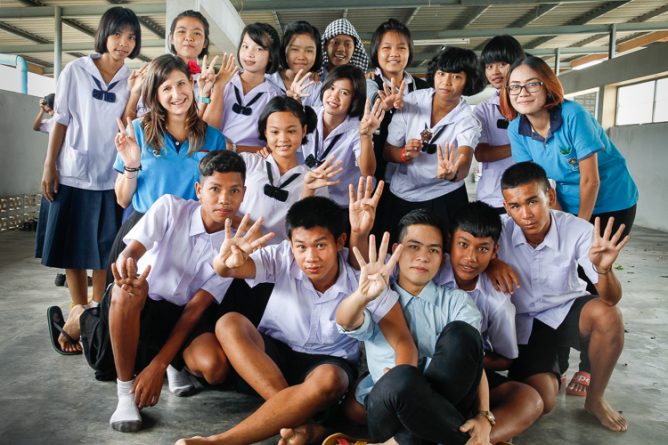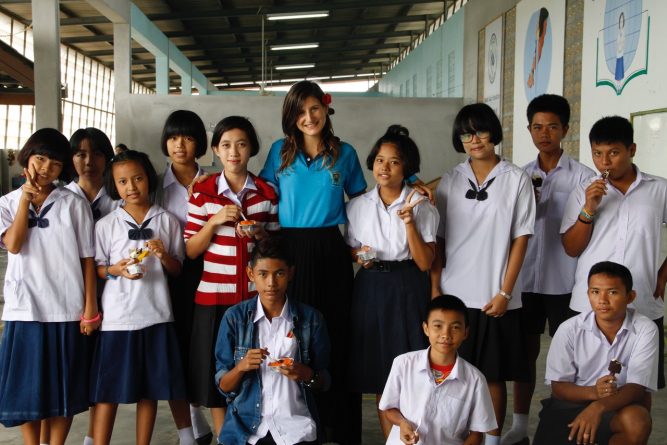 For young Europeans of my generation who have grown up in a continent without boundaries, the border has always represented an abstract concept rather than an obstacle or concrete physical limits. With our roots firmly anchored and grounded far beyond our national borders, we’ve travelled, worked and also loved crossing freely those faded lines on the maps.
For young Europeans of my generation who have grown up in a continent without boundaries, the border has always represented an abstract concept rather than an obstacle or concrete physical limits. With our roots firmly anchored and grounded far beyond our national borders, we’ve travelled, worked and also loved crossing freely those faded lines on the maps.
We’ve developed a sense of unity, the awareness of being part of something larger than our little selves and, quoting a well-known figure, that “the earth is but one country, and mankind its citizens”.
 At least in Europe, the only boundaries that we have always had to deal with were those generated by our minds, the boundaries that we ourselves have drawn.
At least in Europe, the only boundaries that we have always had to deal with were those generated by our minds, the boundaries that we ourselves have drawn.
It has always been a matter of lines: the lines that separated us from achieving our goals, the intangible lines that we have drawn to separate us from the people who surround us, that, as time passed by, we’ve turned into barriers hoping that nobody overcomes them.
And while the European Union is now busy restoring borders and boundaries through walls and kilometers of barbed wire, young people of my generation feel suffocated by these lines.
Just when you try to put your head above the parapet and have a look beyond the border that you feel that sense of emptiness. A mixture of fear and desire that push the most adventurous of us to pack up and take a chance, crossing borders, driven by the desire to discover what lies on the other side.
For all these reasons, I decided to spend almost one year of my life in Ranong, a border town between Thailand and Myanmar. Ranong is one of those places on Earth where the border can be so slight and, at the same time, heavier than any other barrier.
Because of their experience of oppression, poverty, and lack of work opportunities in their own country, many people from Myanmar decide to cross the border and come here in Thailand searching for a better future for themselves and their families, but most of the time what they find is a hard life full of tremendous challenges: fraud and abuse; lack of access to healthcare, educational opportunities and other resources due to the nature of their migration status.
Here along the Thai-Myanmar border, where the Marist Asia Foundation serves the poorest Burmese migrants through education and health programs, I was surrounded by these amazing people who have shaped my life over the last year. Thanks to them I’m not only another year older but another year wiser.
 Even if I was supposed to be the teacher for the students of the Burmese Migrant Secondary Programme I think that inside those classes I’m the one who learnt most.
Even if I was supposed to be the teacher for the students of the Burmese Migrant Secondary Programme I think that inside those classes I’m the one who learnt most.
At the beginning, the students were so shy and silent, but their big smiles made me feel immediately at ease. And this is how it started.
As time passed, they became less shy and more talkative and they started sharing with me their life and their experiences, despite language difficulties. I’ve discovered how hard their life can be, but wonderfully their smiles have never changed.
From this experience, I’ve learned that life can be extremely hard at times, but you never have to get tired of smiling.
I’ve learned the power of acceptance, that doesn’t mean resignation, but simply do not spend your energies focusing on what cannot be changed, ruining the serenity of your day.
I’ve learned that happiness doesn’t come as a result of getting something that you don’t have, but of being thankful for all you have.
Three simple life lessons that I hope I’ll never forget!
Marist Asia Foundation is thankful to Caritas Italiana for sending young Italian Volunteers to support the Health and Education Programmes over the past several years. Their presence and support has reminded our Burmese Migrant Children and families of the love and support of so many people from around the world